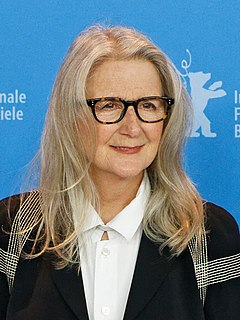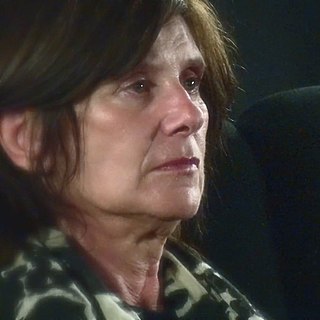A Quote by Sally Potter
The language of cinema as it has evolved has also excluded vast swathes of human experience. The forms we find in the process of making a film can start to redress this balance and venture into uncharted territory. This is not just about unsung identities but about the subtleties and nuances of contemplation, the drifting spaces in which the worlds of the very small and the very large collide. Camerawork is a part of that.
Quote Topics
Related Quotes
Films can't change the society, they can simply open the space for the discussion which can lead to social change and can start new forms of social activism. I feel formally that I've scratched the surface of something very important about the nature of nonfiction film, about what we're very rarely honest about: When you film anybody, they start performing.
More than my other films, Uncle Boonmee is very much about cinema, that's also why it's personal. If you care to look, each reel of the film has a different style - acting style, lighting style, or cinematic references - but most of them reflect movies. I think that when you make a film about recollection and death, you have to consider that cinema is also dying - at least this kind of old cinema that nobody makes anymore.
That is a horrible thing in a way, but it is the one thing poets can bring back to experience, this intense focus on language, which activates words as a portal back into experience. It's a mysterious process that's very hard to articulate, because it's focused entirely on the material of language in a way, but in the interests not just of language itself whatever that would mean - that's the mistake, by the way, that so many so-called "experimental" poets make - but in service to human experience.
I don't wish to defend everything that has been done in the name of Utopia. But I think many of the attacks misconceive its nature and function. As I have tried to suggest, utopia is not mainly about providing detailed blueprints for social reconstruction. Its concern with ends is about making us think about possible worlds. It is about inventing and imagining worlds for our contemplation and delight. It opens up our minds to the possibilities of the human condition.
It's really good to talk about it [ hydraulic penises and prosthetic butts], and it's very gratifying when people ask us about the other aspects of the film [Swiss Army Man], but [those things] are part of the movie and they're important and hilarious, a very fun part of the movie, so there's no sense from us of not wanting to talk about that. I think it's exciting that those things exist in a film that is also very heartfelt and emotional and profound.
I know why I make films -cinema is a mode of expression that allows you to express all the nuances of a thing while including its opposites. These are things that can't be quantified mentally; yet they can exist and be juxtaposed. That may seem very contradictory. Cinema allows you to film these contradictions.
When you start talking about same-sex marriage, you start talking about abortion, and I think those issues are very very important and very interesting and very right for us to talk about, but when we allow those issues to cannibalize all other issues we find ourselves homeless while we debate about it.
There does seem to be a sense in which physics has gone beyond what human intuition can understand. We shouldn't be too surprised about that because we're evolved to understand things that move at a medium pace at a medium scale. We can't cope with the very tiny scale of quantum physics or the very large scale of relativity.
Many people think that when we practice agriculture, nature is helping us in our efforts to grow food. This is an exclusively human-centered viewpoint... we should instead, realize that we are receiving that which nature decides to give us. A farmer does not grow something in the sense that he or she creates it. That human is only a small part of the whole process by which nature expresses its being. The farmer has very little influence over that process... other than being there and doing his or her small part.





































